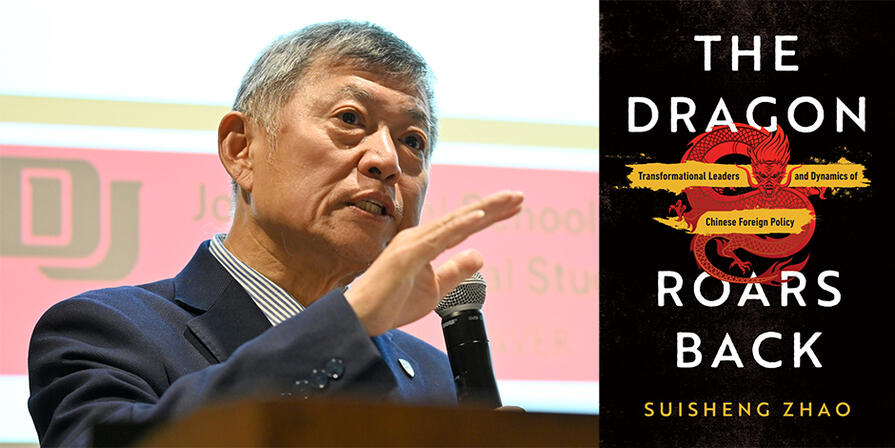Suisheng Zhao draws on his new book, The Dragon Roars Back, to take us inside the historical and global influences on Chinese policy makers since 1949. He highlights the varying priorities of the Communist Party leaders and looks at the practices and outcomes from the founding of the people’s republic, the war in Korea, the break with the Soviet Union and rapprochement with the United States. Prof. Zhao looks at China's strategies toward Great Powers and the country's immediate neighbors, looking at tensions in the South China Sea, covid-19 mask and vaccine diplomacy through to Russia's invasion of Ukraine.
Prof. Zhao emphasizes the distinct stamp Mao Zedong, Deng Xiaoping and Xi Jinping put on China's foreign policy. He accounts for the shifts in the aims of leaders, noting how balance of power thinking animated adjustments when global circumstances changed. He discusses the centrality of the national humiliation narrative in mobilzing the nation. As befits one of the foremost scholars on Chinese nationalism, he helps us understand bottom-up vs state led nationalism and contrasts affirmative, assertive and combative nationalism.
Prof. Zhao concludes by describing the institutional changes that Xi Jinping has made to implement his foreign policy agenda. He argues that China’s current approach to dealing with others has become incoherent, irrational and unpredictable.
Prof. Zhao's presentation was followed by a lively discussion with questions and observations from students, specialists and members of the general public.
This talk is also available at our YouTube channel.
 Suisheng Zhao is professor and director of the Center for China-U.S. Cooperation at Josef Korbel School of International Studies at the University of Denver. He’s the founding editor of the influential Journal of Contemporary China and the author and editor of ten books, including Power Competition in East Asia (1997), A Nation-State by Construction: Dynamics of Modern Chinese Nationalism (2004), China-US Relations Transformed (2007), Debating Political Reform in China (2014), and Chinese Foreign Policy: Pragmatism and Strategic Behavior (2016).
Suisheng Zhao is professor and director of the Center for China-U.S. Cooperation at Josef Korbel School of International Studies at the University of Denver. He’s the founding editor of the influential Journal of Contemporary China and the author and editor of ten books, including Power Competition in East Asia (1997), A Nation-State by Construction: Dynamics of Modern Chinese Nationalism (2004), China-US Relations Transformed (2007), Debating Political Reform in China (2014), and Chinese Foreign Policy: Pragmatism and Strategic Behavior (2016).
Prof. Zhao spoke at USC on May 4, 2023, the 104th anniversary of student protests in Beijing against the treatment of China at the Paris Peace Conference ending World War I. He previously spoke at USC's inaugural conference, discussing prospects for political reform (USCI | YouTube).




